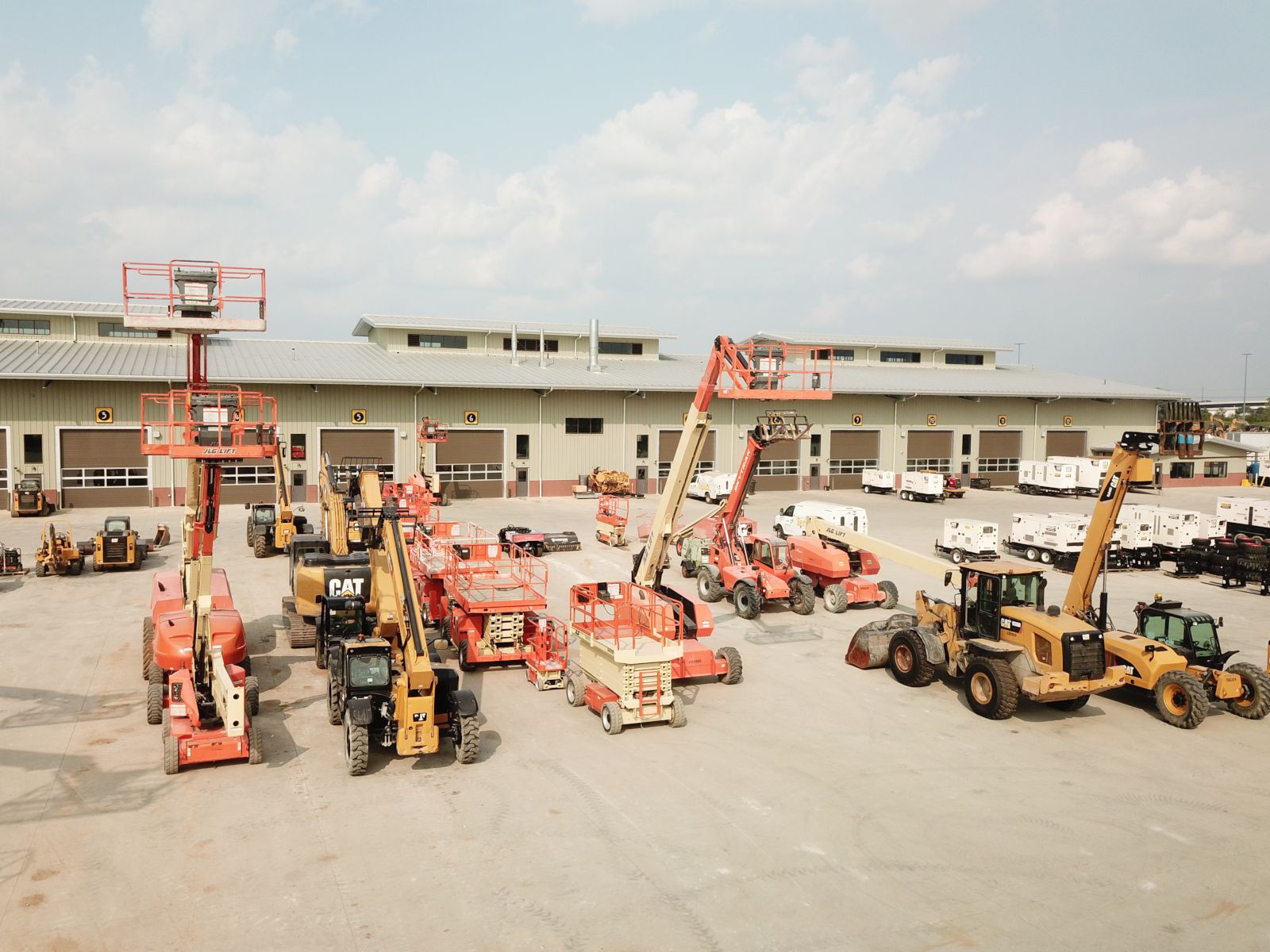Heavy Equipment Rental: Big Machinery for Any Construction Task
Heavy Equipment Rental: Big Machinery for Any Construction Task
Blog Article
Optimize Your Budget by Recognizing the Costs Related To Construction Equipment Services
Recognizing the full scope of prices related to building equipment services is vital for maximizing your budget. While the first rental charge may appear straightforward, numerous extra expenses-- such as transport, fuel additional charges, and upkeep-- can quickly gather, affecting your financial preparation. Furthermore, recognizing numerous charges and the details of rental contracts can help stay clear of unforeseen economic concerns. What strategies can be utilized to efficiently take care of these costs and make certain a more reliable rental experience?
Summary of Rental Costs
When taking into consideration building equipment leasings, understanding the linked expenses is paramount for efficient budgeting and project preparation. Rental expenses can differ significantly based on numerous variables, consisting of equipment kind, duration of service, and location. The preliminary rental fee usually shows the tools's market demand and its linked operational abilities, affecting the general expenditure.
Along with the base rental price, ancillary expenses might arise, such as transport fees, fuel surcharges, and upkeep charges. It is vital to represent these extra expenditures to accurately examine the complete cost of renting out devices. In addition, the rental period can influence pricing; longer leasings might qualify for discounted rates, while temporary rentals may sustain higher everyday charges.

Breakdown of Rental Rates
An extensive understanding of rental rates is important for professionals and job managers aiming to maximize their spending plans. Rental prices for building devices usually include several components, consisting of base prices, time-based fees, and usage costs.
Base prices are the core fees connected with the rental of the tools, usually established by the type and size of the equipment. These prices can vary significantly, affected by aspects such as devices need, schedule, and regional market fads. Time-based costs, which may be daily, weekly, or monthly, offer to fit different task timelines and rental periods.
Additionally, rental prices may consist of use fees, which apply when devices is utilized past a specified limit, making sure that the rental company can make up deterioration. Seasonal need fluctuations can additionally impact rental prices, with peak building periods normally commanding greater prices.
Additionally, understanding the rental company's policies pertaining to maintenance and insurance policy can supply further insight right into the overall price structure. By examining these components, specialists can make enlightened decisions, making certain the selection of rental devices straightens with both project demands and budget restrictions.
Additional Fees to Think About
Comprehending the ins and outs of added costs is vital for contractors to manage their overall leasing costs successfully. Past the typical rental prices, various additional fees can substantially affect the overall expense of devices leasing. These charges commonly consist of shipment and pick-up fees, which can vary based on distance and logistics associated with carrying the equipment to and from the job site.
Moreover, some rental companies might enforce gas additional charges if the devices is returned with much less fuel than when rented. It is also important to recognize potential cleaning fees, particularly for specialized devices that needs detailed upkeep after usage.

Completely evaluating the rental agreement and making clear these extra fees ahead of time can assist professionals stay clear of unforeseen costs and make certain that budgets continue to be intact throughout the task lifecycle.
Repair And Maintenance Costs
Regular upkeep and repair expenditures are often forgotten factors that can significantly affect the general expense of building tools rentals. When renting out tools, it is vital to consider not only the rental costs but likewise the potential expenses related to keeping the machinery in optimum operating condition.
Numerous rental firms include fundamental upkeep as component of the rental agreement; nevertheless, extra comprehensive repair services or unexpected break downs can bring about additional expenses. It's important to assess the rental agreement carefully to comprehend what maintenance solutions are covered and what duties drop on the occupant.
Furthermore, equipment that is not well-maintained can result in ineffectiveness on duty website, possibly creating hold-ups and raising job expenses. To alleviate these threats, it is suggested to perform normal examinations and keep open interaction with the rental provider regarding any kind of concerns that emerge throughout usage.
Insurance Coverage and Obligation Expenses
Insurance coverage and obligation costs are critical components that can significantly influence the total cost of building equipment rentals (construction equipment rentals). These costs make certain that both the rental firm and the client are protected from possible monetary losses arising from crashes, damages, or theft throughout the rental period

Additionally, customers should know any deductibles or exemptions in the insurance plan, as these can influence potential out-of-pocket expenditures. Understanding the conditions of any insurance protection is vital to prevent unanticipated costs. Eventually, budgeting for insurance visit here and obligation expenditures can help make sure a smoother rental experience and shield against monetary threats associated with building jobs.
Verdict
In final thought, a thorough understanding of the costs associated with building and construction tools services is necessary for efficient budget plan management. Ultimately, educated decision-making pertaining to devices leasings contributes to the total success of building ventures.
Rental costs can differ substantially based on a number of factors, consisting of devices type, period of leasing, and location (construction equipment rentals). The rental duration can affect pricing; longer services may certify for reduced rates, while temporary rentals could incur greater everyday charges
By carrying out comprehensive study and engaging with reliable rental firms, professionals can effectively navigate the intricacies of rental prices, ultimately optimizing their financial sources.
Beyond the common rental rates, different additional fees can significantly affect the complete cost of tools rental. Rental business usually offer responsibility Continued insurance that More Info covers injuries to 3rd events or damage to residential property, while equipment damage insurance coverage can cover the price of repair work or substitute if the rented out equipment is damaged.
Report this page